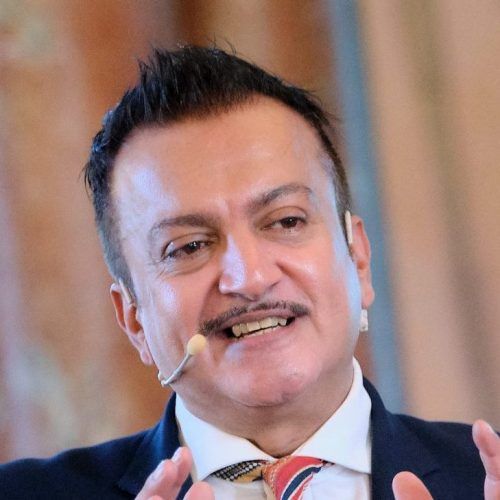An epoch-making year: from suffocation to resilience
Frankly Speaking
Chief Operating Officer and Chief Spokesperson of Friends of Europe
How do you wrap up a year like this one?
It’s been a suffocating year with only brief moments of respite. Daily data on infections and death rates have forced us to recognise the scale of what was happening. Politics and science became a new nexus until we learned to our dismay that politicians hadn’t quite acknowledged the magnitude of what was taking place. It was a year punctuated by the brave acts of people and communities across the world standing up to corruption, battling for rights and demanding better governance and leadership.
A simple question keeps ricocheting across this year: why does adversity always have to be the spring well of positive change? Are we so comfortable in our lives and inward-looking that it takes an extreme jolt to wake us into acting for the common good?
The coronavirus pandemic has changed everything and revealed weaknesses in ourselves and our systems. But it also brought us closer and, perhaps momentarily, reminded us of what’s important. With a vaccine in place, how quickly will we forget the most significant change to humanity and our lives since the 1930s?
Trump’s suffocating knee on the neck of liberalism is lifting
The virus was the first to steal our breath, but it also gave rise to other forms of suffocation: the political stalemates and lack of solidarity across the EU and in global trade relations; the failure of supply chains; the unrecognisable transformation of the private sector; and the tossing of economic theory out of the window. The youth was starved of formal education, and our health systems became overwhelmed. Migrants and ethnic minorities suffered disproportionately and the brutal killing of a black man by police officers in the United States suddenly changed the atmosphere and consciousness of racial inequality.
Are these the stark reminders of where we place value in our societies and how we prioritise public spending? Will this year be a salutary lesson on what is important for our future lives?
As the year draws to a close, Trump’s suffocating knee on the neck of liberalism is lifting – giving breath to hope for a renewed liberalism in the US. In Europe, after revealing the worst aspects of its dysfunction, a deal was made which has the potential to breathe life back into the EU and its recovery. Now it’s up to the member states to agree to it – so it’s not all over yet.
We are currently witnessing the largest enterprise and use of taxpayer money to respond to one of the worst crises in modern times. This relatively new Commission, led by more women than ever in its history, has made it through, amidst Brexit, and all manner of turmoil in its neighbourhood and further afield.
In the text of the agreement reached, there are two tiny references, which might not catch our eye, but should: the notion of an international treaty on pandemics under the framework of the WHO, and the EU’s adoption of a global human rights sanctions regime – which are quite telling of whether we have actually learned what’s been important this year.
Seeding resilience has to become a policy and political norm
There’s been talk of a ‘new normal’, ‘building back better’ and a green recovery. If we zoom out and think of all that’s gone wrong, and how transformative it’s been – none of these phrases capture or reflect that we are learning a new language. This will entail a systems rethink and a rewiring our relationship to money, tax, governance, politics, and how we enable social and public good to fit the crises to come. Seeding resilience has to become a policy and political norm.
The pace of technological and climate change hasn’t been in lockdown, both have accelerated and are likely to send new shocks to our societies; neither respect the notion of time. Both require a new architecture of governance, political leadership and unwavering ambition. To not do so, and continue as we have thus far – even if we use the language of ‘resetting’ – would be to neglect the epoch-making nature of 2020.
It’s time to give life to bold ideas reconceptualising welfarism, markets, economics and how governments work. Now is the time to examine the role that communities can play in change-making – using their collective intelligence to be problem solvers and assets rather than as subjects of services and as consumers.
If this year provides foresight about what’s to come, what to expect and how things might change – one thing is a certainty: women power, from Belarus and beyond, and at the top of the European Commission, women across the world are changing old ways into new. Winning on anti-corruption tickets, governing better in times of crisis, achieving consensus and breathing life into the notion of public service. Whilst it’s often a fool’s errand to predict the future, perhaps there’s something we can count on if this year is anything to go by: women power is likely to be a shaper of things to come.
- Friends of Europe: Are we witnessing the dawn of a new global politics?
- Europe’s World: The pandemic and the economic crisis: what lies ahead for the Western model
- Debating Europe: How would you change the European Union?
Stay informed
